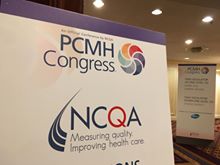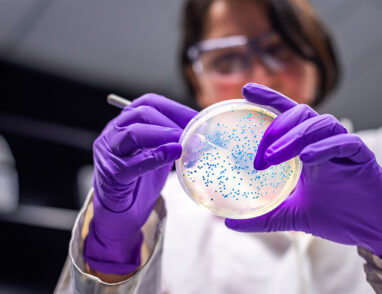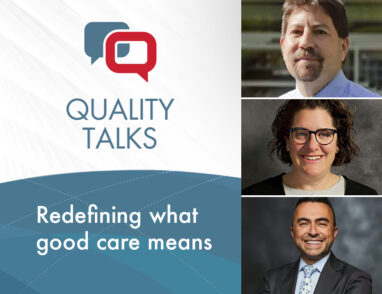PCMH Best Practices: It’s All in the Setup
October 7, 2016 · Matt Brock
Best Practices in PCMH Achievement & Maintenance. That’s how Dr. Sari Miettinen,  a pediatrician and president of the consulting firm Optimum Practice Management, titled her presentation this morning before hundreds of attendees at NCQA’s PCMH Congress in Chicago.
a pediatrician and president of the consulting firm Optimum Practice Management, titled her presentation this morning before hundreds of attendees at NCQA’s PCMH Congress in Chicago.
As you might expect, there was discussion of NCQA standards and elements, team-based care, performance measurement and quality improvement. But there was something I did not expect to hear in Dr. Miettinen’s presentation.
We’ll get to that in a moment, but first:
PCMH Congress at Home
If you couldn’t make it to Chicago, NCQA’s professional development team is recording all the sessions and will make them available to you on demand. This one is especially enlightening for practices at just the beginning of their transformation or those considering making the leap. Dr. Miettinen provides the tools that practices can use to map out their own plan for transforming and seeking NCQA Recognition.
It’s All in the Setup.
That’s essentially what Dr. Miettinen told her audience. If you are pursuing transformation and eventual recognition, you have to set your team—the entire team—on the proper path from the beginning. You have to set the right tone.
“This is not a project,” she said. “It’s a care model.”
Huh? Not a project? Transforming a practice to patient-centered care, favoring value over volume, measuring performance and improving it, how is that not a project? A big one!
Dr. Miettinen told her audience of hundreds that when transformation managers describe the process as a project, staff and colleagues—the very people who’ll implement transformation–hear the words “more work”. Miettinen added that they’ll also expect to complete the project. They’ll expect it to come to an end.
We all know that transformation never ends. It’s all about continuous improvement.
So, to get everyone on board, Miettinen advised, telling them they are each members of the team that will change the practice’s approach to care. Each of them, in clinical roles or otherwise, will play a role. To keep them engaged—and to avoid the “more work” syndrome—break the changes into smaller tasks, each with its own PDSA cycle. Plan. Do. Study. Act. As transformation progresses, these small tasks accumulate and a transformative culture will take hold.
It’s an intriguing approach for getting the entire practice staff on board. Miettinen added it may even be fun to not tell the team that earning NCQA recognition is part of the plan. The ultimate goal is true transformation, right? Won’t the team be surprised when you show them the NCQA seal it didn’t even know it earned?
PCMH Best Practices
Again, it’s worth seeing the full presentation and Dr. Miettinen’s detailed advice online when NCQA’s Professional Development Department makes them available. She shared a number of what she called “pearls.” But the takeaway from my first PCMH Congress Session was that nothing works unless the entire team is with you, focused on delivering patient-centered care and continuously improving. Announcing a big, new project may not be the best approach.
It’s all in the set up.








